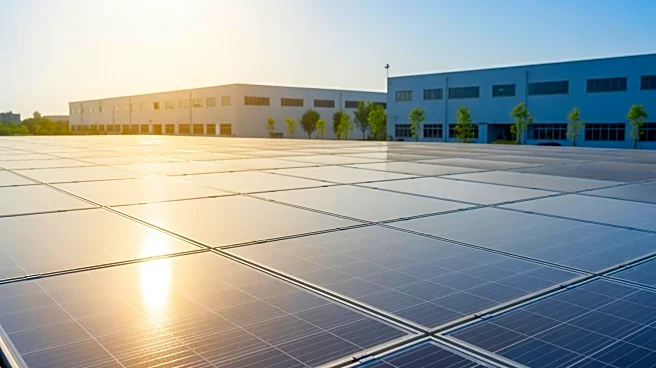What's Happening?
First Solar, Inc., a leading American solar technology company, has announced plans to establish a new production facility in Gaffney, South Carolina. The facility, expected to commence operations in the
second half of 2026, will focus on final production processes for Series 6 Plus modules. This expansion is part of First Solar's strategy to increase its domestic production capacity to nearly 18 GW by 2027. The new plant will create over 600 jobs, offering an average salary of $74,000, which is significantly higher than the local per capita income. The initiative is driven by increased demand for American-made energy technology following the passage of the One Big Beautiful Bill Act, signed by President Trump in July 2025.
Why It's Important?
The establishment of the new facility in South Carolina is a significant step towards enhancing U.S. energy independence and supporting local economies. By increasing domestic production capacity, First Solar is aligning with national goals for energy dominance and affordability. The creation of over 600 jobs will bolster the local economy in Cherokee County, providing substantial employment opportunities. Furthermore, the facility's compliance with anticipated Foreign Entities of Concern guidance ensures that the production aligns with stringent national security and trade policies. This expansion reflects First Solar's commitment to investing in American manufacturing and research infrastructure, contributing to the broader goal of reducing reliance on foreign energy sources.
What's Next?
First Solar plans to continue expanding its footprint in the U.S., with the new facility being part of a larger network of manufacturing and R&D centers across the country. The company aims to support over 30,000 jobs by 2027, representing more than $3 billion in labor income. As the facility becomes operational, it will play a crucial role in meeting the growing demand for solar technology that complies with national security standards. The success of this initiative could encourage further investments in renewable energy infrastructure, potentially influencing policy decisions and trade agreements that favor domestic production.









